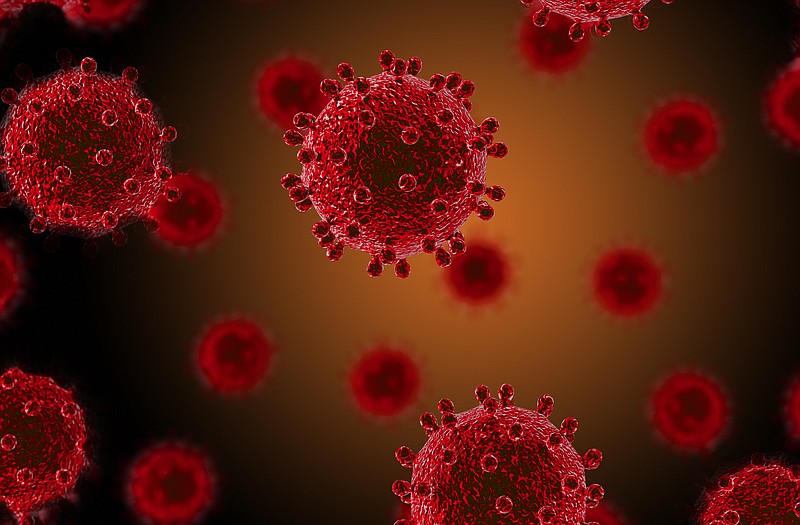While the coronavirus is known for wreaking havoc on the lungs, a growing amount of research suggests that COVID-19 patients - including those with only mild cases - can experience heart complications following their illness.
Dr. Harish Manyam, chief of cardiology at Erlanger hospital, said it's known that viruses, such as influenza and the common cold, can damage the heart. So, it makes sense that the coronavirus would as well.
For example, flu-like illnesses increase one's risk of heart attack, and viral illnesses are the most common cause of inflammation of the heart muscle, known as myocarditis.
"We treat patients fairly frequently and have treated a lot of patients who have had mild illnesses of myocarditis, or inflammation of the heart muscle, and then patients who had severe illness where they actually needed to have a heart transplant," Manyam said.
Often, myocarditis goes undetected and people don't know they're affected until going to the doctor for symptoms, such as shortness of breath, he said.
Although Manyam hasn't treated someone for myocarditis due to COVID-19 yet, it could happen soon given the contagious nature of the coronavirus and the high volumes of those infected.
"This is a viral illness that I think we've all kind of thought in our head when patients get sick, they get intubated, they end up on a ventilator. But the reality is this really is something that can affect the whole body," he said. "The heart can be affected, the lungs can be affected, probably the brain is affected, and we have increased blood clot and blood vessel problems."
Dr. Alison Bailey, chief of cardiology for Centennial Heart at Parkridge, said one study from Germany garnered worldwide attention after cardiac MRIs of 100 recovered COVID-19 patients found abnormalities in 78% of patients and "ongoing myocardial inflammation" in 60%.
"Whether that means anything clinically in the long-term situation, none of us know," Bailey said, adding that similar patterns of inflammation may occur from other infections that are under less scrutiny than COVID-19.
"If you have the flu, I don't do an MRI of your heart," she said. "But that [study] made people really nervous about saying, 'OK, go back to a normal life,' without knowing what this means."
She said uncertainty around COVID-19 underscores the importance of flu shots this year, especially for those with heart conditions.
"If you get the flu and your body is stressed out from the flu, you're probably at an increased risk of getting other viruses like COVID. So it's always a recommendation for patients with heart disease to get a flu shot, and I would say this year is even more important than any other year," Bailey said.
Manyam said a lot more research is needed to understand heart inflammation and other complications from COVID-19.
"Does that inflammation persist over a long period of time due to the weakening of the heart muscle that can't get better, or does that heart muscle spontaneously recover without medication? Or, do we need some kind of medication to treat this weakened heart muscle?" he said. "That data is really unknown, largely because we haven't gotten to the end of this [pandemic]."
Still, Manyam said it's important not to neglect heart health over coronavirus fears.
"We've seen a lot of patients in the very beginning try to avoid any health care setting, and they ended up having significant issues with severe cardiac problems as far as having heart attacks, acute heart failure," he said. "The possibility of you getting a viral illness does not outweigh the fact that you have a cardiac illness that you're dying from at this moment."
The American Heart Association recommends that those recovering from COVID-19 watch for the following symptoms and contact their doctor if they experience them: increasing or extreme shortness of breath with exertion, chest pain, swelling of the ankles, heart palpitations or an irregular heartbeat, not being able to lie flat without shortness of breath, waking up at night short of breath, lightheadedness or dizzy spells.
Contact Elizabeth Fite at efite@timesfreepress.com or follow her on Twitter @ecfite.


